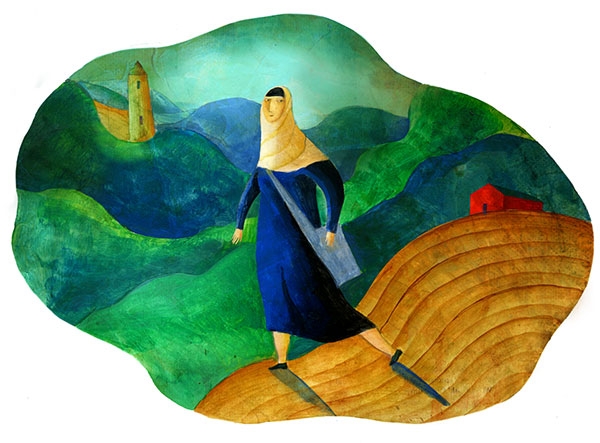New Face of Terrorism
| by Eva Gudbergsdottir

In 2003 the United Nations referred to Grozny, the capital of Chechnya and epicenter of two wars with Russia, as the most destroyed city on earth. After years of reconstruction, Grozny is home again to more than a quarter million people. It’s also where Kathryn Smart is studying the Chechen language and conducting research. “And walking so much I know the city better than the taxi drivers,” she adds.
Her interest in Chechen culture developed over time. Growing up in Michigan, she loved going to ice hockey games with her father. Her favorite player was Russian, which spurred her choice of Russian as her language of study while an undergraduate in international relations at Michigan State University. She studied abroad in Volgograd not once, but twice, the second time enrolling in an advanced Russian language study program. During the latter trip she worked as an English tutor for a Chechen family in Moscow.
Kathryn came to the Institute intending to pursue a career in the nonproliferation field, but switched her focus to terrorism studies after taking Professor Gordon Hahn’s course on Islamism in Russia.
Through the Institute’s Graduate Initiative in Russian Studies, Kathryn has been researching the role of women in Chechen culture at Grozny State University to better understand how culture and politics play into women’s decisions to join militant groups in the North Caucasus. “I think it is very important to learn Chechen to fully understand the culture.”
Traveling into the countryside, Kathryn has discovered the limits of modernity in Chechnya. Once you’re outside the capital there is no running water, there’s limited electricity, and young women have restricted freedom of movement.
She plans to continue her research until January, when she will move to neighboring Georgia for five months to continue her Chechen language studies, supported by a prestigious Boren Fellowship. It’s a long way from the ice rinks of Michigan but exactly where her heart now lies.
For More Information
Eva Gudbergsdottir
evag@middlebury.edu
831-647-6606
